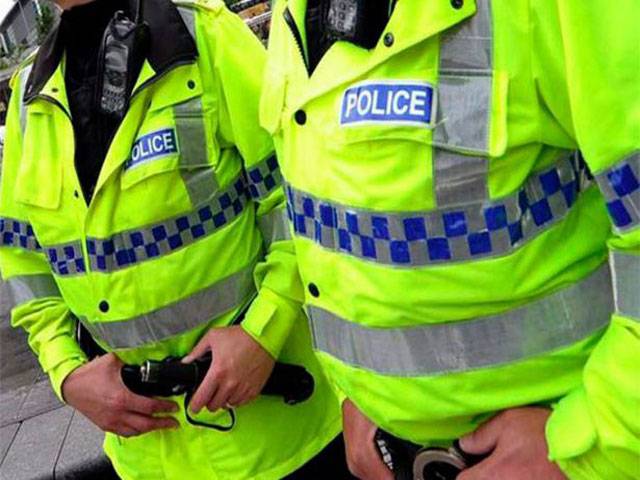Jason N Parkinson
Those of us who regularly cover protests have suspected the police had us under surveillance for many years. Cameras documented our movements, officers we had never met addressed us by our first names and seemed to know a lot about us. It was always a blanket denial from the Metropolitan police: “The police do not target journalists.” That mantra was still being repeated two weeks ago by Sir Bernard Hogan-Howe, the commissioner of the Met, to the home affairs committee.
When a package landed on our doorstep in January, that all changed. It was the first of two subject access requests (SAR), concrete proof that my partner and colleague Jess Hurd and I were under surveillance and our files on the domestic extremist database, just for doing our jobs.
Now the National Union of Journalists (NUJ) and our lawyers at Bhatt Murphy are bringing a judicial review in the high court. Our group of six NUJ members will challenge the collection and retention of this data. We want our files erased and we want a policy to protect all journalists and trade union activists from future state surveillance.
Around 2007, police interest in journalists increased. In those days, it was the infamous forward intelligence teams, or FIT squads. Many journalists faced stop-and-search, often under the Terrorism Act. Just trying to get to a protest we had been hired to cover was a job in itself.
After several years of complaints and launching campaign group I’m a Photographer Not a Terrorist, the NUJ launched an investigation into surveillance of its members, in particular police surveillance at the Kingsnorth climate camp and gave evidence to the joint committee on human rights on the scale of the problem. NUJ-funded films Collateral Damage and Hostile Reconnaissance exposed what was happening on the ground, including increased violence towards the press.
We received obstructive replies to Data Protection Act requests in 2008 and 2009 for any information that the Met held about us. After litigation pursued by activist John Catt challenging the retention of his data, we learned the police had monitored and retained information on the lawful activities of many innocent people, so we tried again. We made requests for any data held about us by the Met, including data held by its secretive National Domestic Extremism and Disorder Intelligence Unit. When the SAR files came through, we were initially excited. This was hard evidence to prove the spying was real and not just a police tactic of intimidation. We even joked that you were not doing your job well enough if you didn’t have a police file. That soon gave way to a sinister feeling, knowing your whole working life was monitored by the state and you were categorised “XLW” (extreme left wing). Jess was labelled more colourfully as always wearing “Joe 90-style” spectacles. My domestic extremist file dates back to August 2005. Twelve pages of 141 separate surveillance logs document my movements during protests I have covered, with incredible detail about my clothing. The obvious redactions suggest anyone I had associated with at these events would also have been logged. My Twitter account and a NUJ Facebook page post were recorded, as was an event where I spoke in 2011. Ironically, the subject of my talk was police surveillance. The most worrying log was away from work. In July 2008, an officer spotted me on Forty Lane, Wembley, on my bicycle. There was a search of voter registration records and the CRIS database, where information on witnesses and victims of crime are held. This pulled up my previous address, my current address and the name of my former partner – who was then checked for a criminal record on the police national computer.
Jess’s file went back to August 2000, to a deportation protest at Heathrow airport. It also covered the G4S security Olympic Park incident and when she was detained as a terror suspect while covering an Irish Traveller wedding reception in London’s Docklands. What the police delivered on Jess’s file has obvious gaping holes and the stark omissions in my file – the 2008 Greek embassy incident where we won a court case after being prevented from filming, the London G20, the Dale Farm eviction and subsequent legal case – suggest the police have not given us everything. The files also show a large amount of inaccurate, or just plain false, information.
Margaret Thatcher’s unheard “Enemy Within” 1984 conference speech labelled opposition to her as an “insurrection” against democracy. Thirty years later, secret courts are already here, the Conservatives want to rip up the Human Rights Act and leave the European Court of Human Rights, which saw to the end of Section 44 Stop and Search. Teresa May, the home secretary, wants to gag, ban and issue curfews on non-violent groups they deem to be extremists. How will that pan out when some of those already deemed domestic extremists are journalists?
This case could not come at a better time. We need an insurrection against this attack on democracy, to stop politicians trampling over our fundamental freedoms.–Guardian
Friday, April 19, 2024
Press freedom is at risk in UK

US vetoes Palestine’s bid for full UN membership
8:27 AM | April 19, 2024
20pc Discos employees involved in power theft: Minister
April 19, 2024
Five govt officials shot dead in D I Khan
April 19, 2024
Parvez Elahi’s indictment delayed again in two cases
April 19, 2024
Hepatitis Challenge
April 18, 2024
IMF Predictions
April 18, 2024
Wheat War
April 18, 2024
Rail Revival
April 17, 2024
Addressing Climate Change
April 17, 2024
Justice denied
April 18, 2024
AI dilemmas unveiled
April 18, 2024
Tax tangle
April 18, 2024
Workforce inequality
April 17, 2024
New partnerships
April 17, 2024
ePaper - Nawaiwaqt
Advertisement
Nawaiwaqt Group | Copyright © 2024





